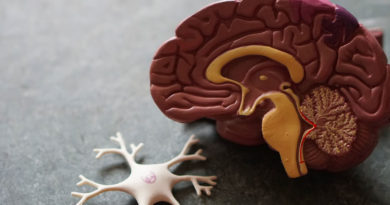Stress As A Caregiver and How to Avoid it
Our bodies have evolved to adapt to the dangers and the ever changing circumstances of our environment. We are designed for short bursts of stress like when we need to run away from a forest fire, from a hungry lion, or from any dangerous situation. What our body hadn’t anticipated is the constant daily stress of modern life in our work and social life and this is nowhere true than in the high-level stress job of the caregiver. The work of a caregiver is no joke. It is a messy and thankless job that involves devotion and infinite patience. Emotionally, it can be trying and draining what with often complaining patients who can be even more impossible to handle if they happen to dislike the caregiver assigned to them. As a whole, a lot of family caregivers cannot separate their strong feelings related to care giving, which can run the entire spectrum of emotions from devotion to guilt, to perceive the need to avoid the problem of caregiver burnout.
This is what a caregiver should remember: You are only as good as the care you can provide. Unfortunately, in a lot of cases this will depend on factors outside your control. You will get frustrated. You will get tired. You will need help. You’re allowed to have these feelings and thoughts. In a lot of instances, you may be unable to distinguish between a passing frustration and a burnout situation. How then to tell between the two? Well, when you’re burnt out, you may manifest warning signs similar to that of depression. This may mean the caregiver may vacillate between irritability and sadness, anxiety and anger. Emotional and physical exhaustion, along with weight changes which are also telltale signs of depression. Bear in mind that a mind that is depressed make for a feeble immune system; which means another warning sign in the form of frequent sickness. And since the caregiver’s job is to care for the health and well-being of the patient, his/her own health is often not looked into. Because most family caregivers are poor, they are reluctant to take up time for their own doctor visits. The only time they see fit to seek medical help is when any of their symptoms grow in intensity or frequency.
It is imperative that caregivers take care of themselves, because placing someone else’s needs above yours, although noble, is not always right or feasible. In a child-parent relationship, to return the favor of having been raised by them, the adult child will often feel the need to look after his/her parents. This is OK when the parents are healthy, but if one or both are sick; the child needs to hire a caregiver since he/she is ill-equipped or unqualified to do so. Taking care of their parents is what most children will do and this naturally comes out of love for parent. It is an honorable idea; however, the reality is that care giving situations requires a village, just like raising a child. If you’re a caregiver, you need to get hooked in with your own outside resources, friends, and family if you want to provide good long-term care and avoid caregiver burnout.



